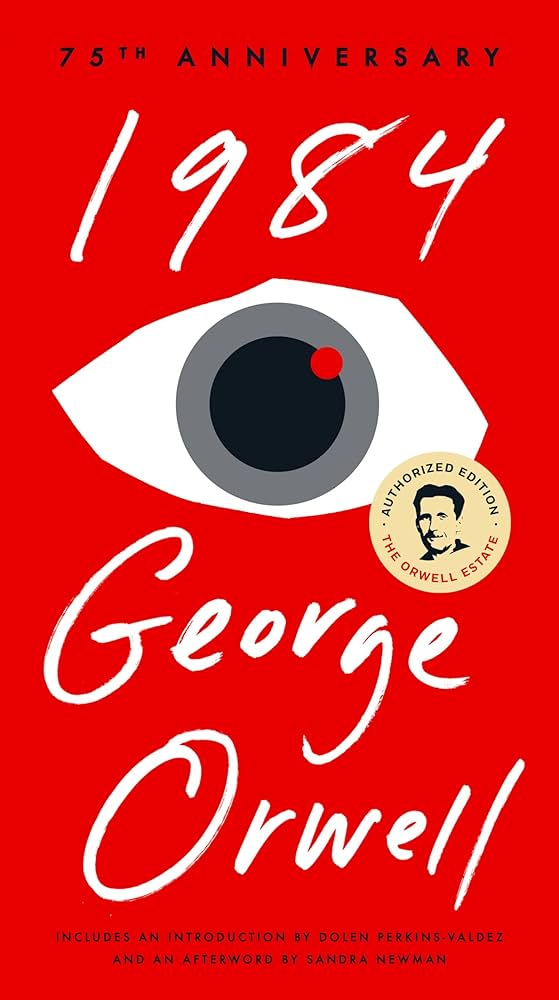TIMELESS READS
A chilling masterpiece that remains as relevant today as when it was written

By Newswriters Editorial Desk
George Orwell’s 1984 is not just a classic dystopian novel—it is an enduring mirror to our own world, where technology has made surveillance seamless and truth negotiable. Written in 1949, Orwell imagined a future ruled by Big Brother, where every thought is monitored, every word recorded, and every fact rewritten to serve those in power. More than seventy years later, his vision feels alarmingly real. From governments tracking citizens in the name of security to corporations harvesting personal data for profit, the boundaries between privacy and control are blurring.
In an era of constant connectivity, Orwell’s world of telescreens and Thought Police has evolved into algorithms, facial recognition, and digital footprints. “Newspeak” now takes the form of manipulated narratives, echo chambers, and online censorship; “Doublethink” thrives in a world where truth bends to power and convenience. Winston Smith’s quiet rebellion against total control is not just a story from the past—it is a warning for the present.
1984 compels us to ask urgent questions: How much freedom are we willing to trade for comfort or safety? Who controls the flow of information that shapes our beliefs? Orwell’s prophetic insight into the dangers of surveillance, conformity, and manufactured truth makes 1984 a defining text for the digital age—a book that reminds us that protecting our right to think freely is the ultimate act of resistance.
Book Review: 1984 by George Orwell
George Orwell’s 1984, published in 1949, remains one of the most powerful and prophetic novels of the twentieth century. Set in a dystopian future where the world is divided into totalitarian superstates, the story follows Winston Smith, a low-ranking member of the Party in Oceania, who dares to question the all-controlling regime led by the figurehead, Big Brother. Through Winston’s eyes, Orwell explores the terrifying consequences of absolute power, state surveillance, and the manipulation of truth.
The novel’s setting is bleak—a world stripped of individuality, privacy, and freedom. Every aspect of life is monitored by telescreens, language is distorted through “Newspeak,” and history is constantly rewritten to fit the Party’s narrative. Orwell’s genius lies in how convincingly he depicts a society where even thought is a crime. Winston’s rebellion and doomed love affair with Julia offer a fragile hope that is brutally crushed, leaving readers haunted by the realization that resistance is futile under such a system.
What makes 1984 timeless is its uncanny relevance. Orwell’s warning against propaganda, censorship, and the erosion of truth continues to resonate in the digital age, where surveillance, misinformation, and political spin shape public perception. Terms like “Big Brother,” “Thought Police,” and “Doublethink” have entered everyday language, underscoring the novel’s lasting cultural impact.
Written in stark, lucid prose, 1984 is both a gripping narrative and a profound political statement. It compels readers to question authority and to defend truth and freedom against any form of totalitarian control. More than seven decades later, Orwell’s vision remains disturbingly familiar—a reminder that the loss of truth is the first step toward the loss of liberty.



